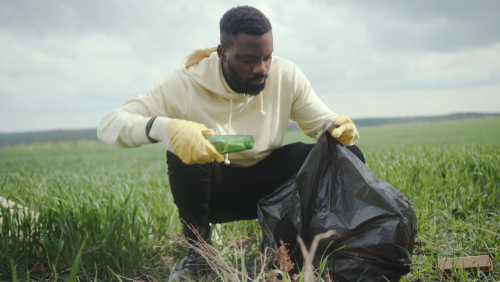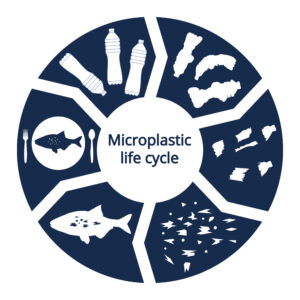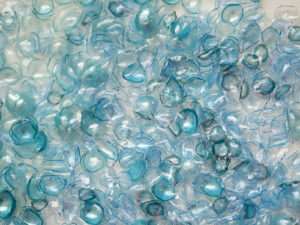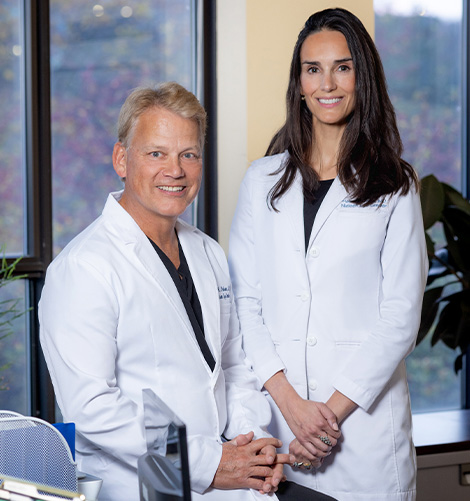How LASIK Can Reduce Your Environmental Impactin Boston, MA

Are you thinking about LASIK and if it may be the right vision correction procedure for you? There are plenty of reasons to get LASIK.
In recent years, it’s gotten more popular, thanks to becoming increasingly more accessible to people worldwide. Having LASIK surgery can give you total visual freedom from contacts and glasses. It can even save you money in the long run.
But one benefit you may not consider when it comes to LASIK is how it can reduce your environmental impact. That’s right: getting LASIK can help you be more environmentally responsible.
If you’ve ever thought that throwing away your disposable contact lenses every day wasn’t doing the planet any favors, you were right. Keep reading to find out how getting LASIK in Boston can reduce your environmental impact!
The Harm of Microplastics

Contact lenses can be convenient for some people, but they can also have a very adverse effect on the environment. While contacts are tiny, they can wreak havoc on different kinds of ecosystems.
Small pieces of plastic like contact lenses, called microplastics, can easily find their way into bodies of water. If you flush or even lose one of your contacts down the sink drain, they will almost always eventually end up in the ocean.
Microplastics aren’t biodegradable. Instead, they float around in the water until an animal of some kind finds it and ingests the microplastic.
Although microplastics are not a choking hazard because of their size, they are still incredibly harmful to animals. When animals ingest these plastics, they can spread diseases.
Disposed contacts that you’ve thrown away carry various fungus and bacteria that were on your eyes. It’s just as easy for diseases to spread among sea life as it does on land. These seemingly harmless bits of plastic can decimate whole ecosystems in the ocean.

Not everybody disposes of their contact lenses by flushing them down the toilet or discarding them down their sink. But the problem is that even if you’re properly disposing of your contacts by throwing them in the trash, they aren’t biodegradable in soil.
The same problem that occurs with sea life also happens on land. Animals can choke on the microplastics and continue spreading diseases. Contact lenses may seem harmless, but their environmental impact and footprint are immense.
Reducing Plastic Waste
If you stop using contacts, you’ll be doing more than reducing microplastic waste. Contact lenses come in many kinds of containers, but most of them are made from plastic.

Everything from contact solution bottles to the individual packaging of each contact lens has to end up somewhere. The plastic from the packaging either ends up in the recycling bin or a landfill.
Plastic is one of the most harmful forms of waste and can cause issues in many different ecosystems. For example, even if you recycle the plastic by-products of contact lenses, there’s a good chance that they’ll still end up in a landfill.
Literal tons of recycled plastic end up in landfills due to improper recycling or simply because recycling companies can’t sell all the plastic people recycle. It’s admirable to try and be a responsible person and dispose of your contact lenses in the trash. But you’re still part of the problem and contributing to environmental damage, even if you’re not aware of it.
It isn’t your fault because it’s nearly impossible to use contacts in an environmentally conscious way. The best way to reduce plastic waste from contacts is not to use them.
The alternative instead of only wearing glasses is LASIK. You may not think LASIK could reduce your environmental impact, but it can!
After all, it’s a permanent vision correction procedure for those that qualify for it. But, most importantly, it means no more contact lenses that you have to throw away.
An Alternative

The most obvious alternative to contacts is glasses, but chances are you’re looking for a way to see that doesn’t involve eyeglasses if you wear contacts. Not only that but glasses aren’t known for reducing your environmental impact, either.
Despite programs for donating used glasses, many still end up being thrown away. Glasses also have accessories associated with them, like lens cleaners, which come in plastic containers.
If both glasses and contact lenses aren’t good for the environment, what’s left if you want to see clearly? The answer is to find out if you qualify for LASIK!
Getting LASIK means you can eliminate the need for glasses or contacts. LASIK is a permanent procedure that reshapes your cornea. It corrects refractive errors like nearsightedness, farsightedness, and astigmatism.
Correcting your vision is the ideal solution for reducing your environmental impact. You’ll no longer need to buy contact lenses, contact lens solutions, glasses, or any of the other accessories that go with visual aids.
It also means a significant reduction in the small plastics and microplastic products that you consume. Combine that with the fact that getting LASIK pays for itself over time, and you save money.
Not only can you save the environment from plastic waste, but you’ll also have more money for the things that matter. You may believe in reducing your environmental impact but think you can’t afford LASIK.
Think again! At Nielsen Eye Center, we offer several affordable payment options that make it easy to fit LASIK into your budget with flexible payment plans. From GreenSky Financing to CareCredit Financing and extended payment plans, there are a variety of ways that you can make your dreams of visual freedom a reality.
People tend to think of things that are environmentally friendly as being prohibitively expensive. There are many areas where “going green” can be tricky, especially when buying clothing. But LASIK is an easy way to do your part in saving the environment without having to break the bank!
If you get LASIK, you’ll be able to see better and make a difference at the same time. Ready to make a change? Schedule your free LASIK consultation at Nielsen Eye Center in Boston, MA, and find out if LASIK is right for you! Online Form
If you have questions about the procedure, what to expect, or what your life could be like after LASIK, give our Patient Advocates a call at 617-471-5665! They are here to answer all of your questions and help you understand everything you need to know about LASIK!






